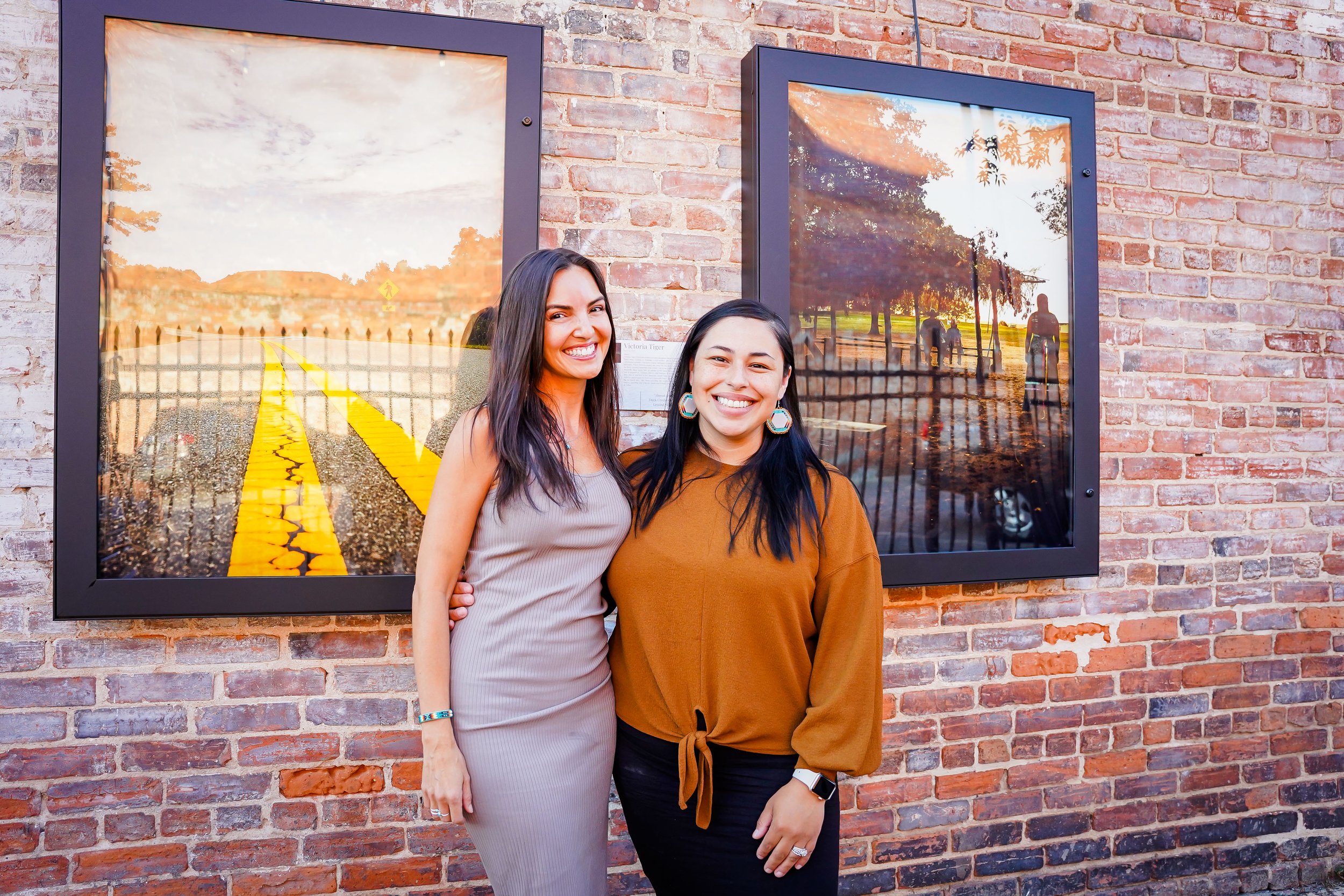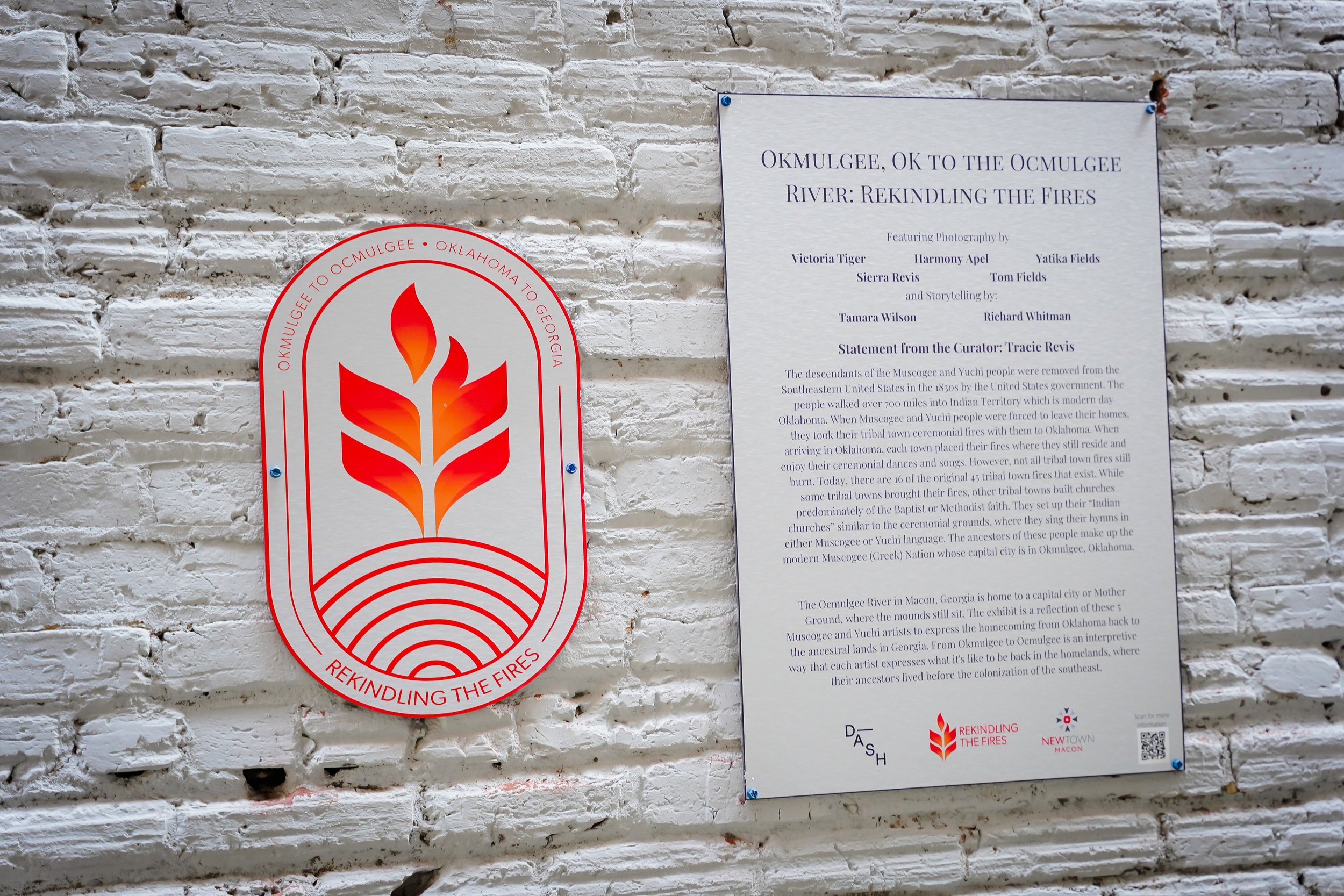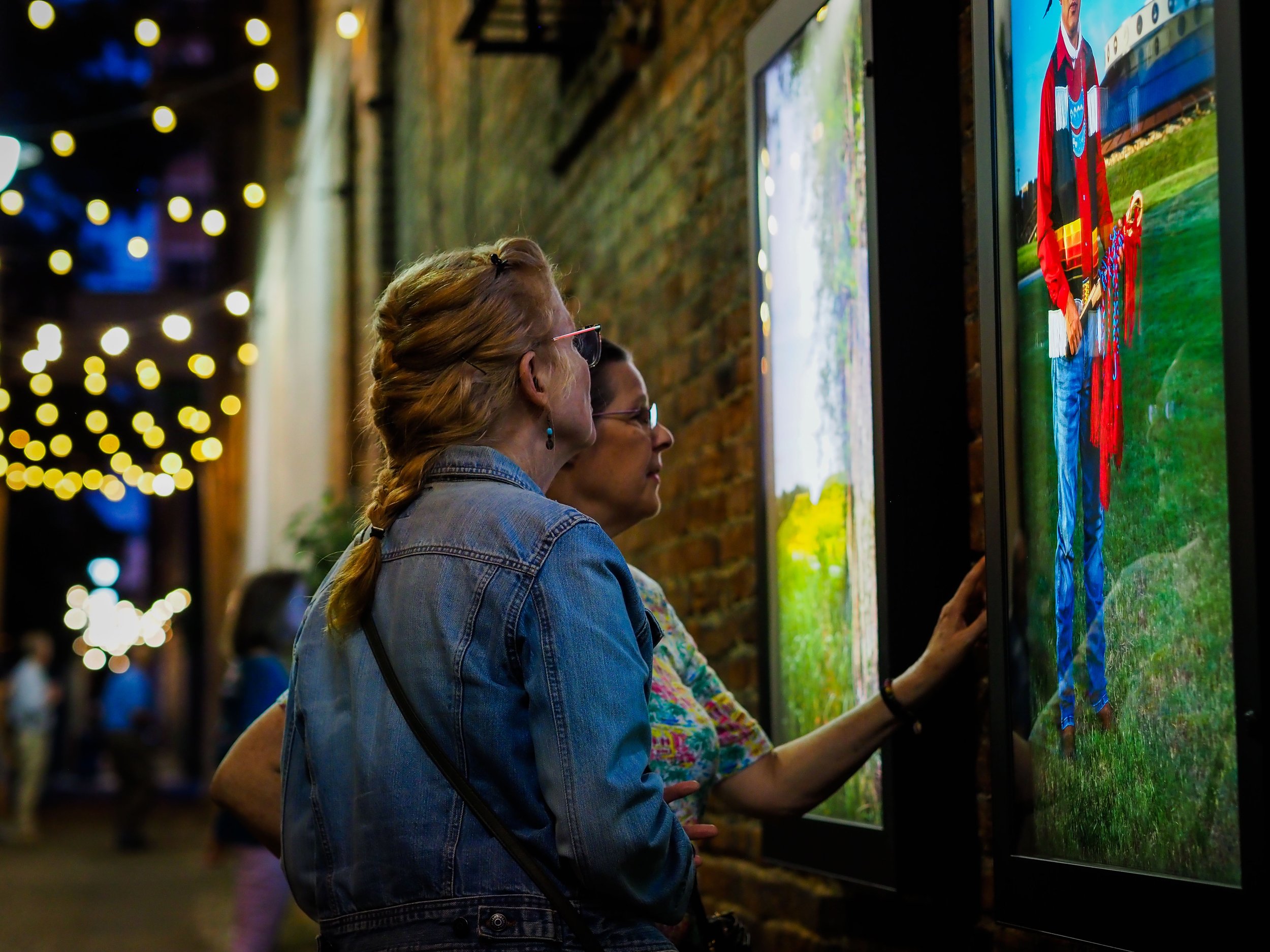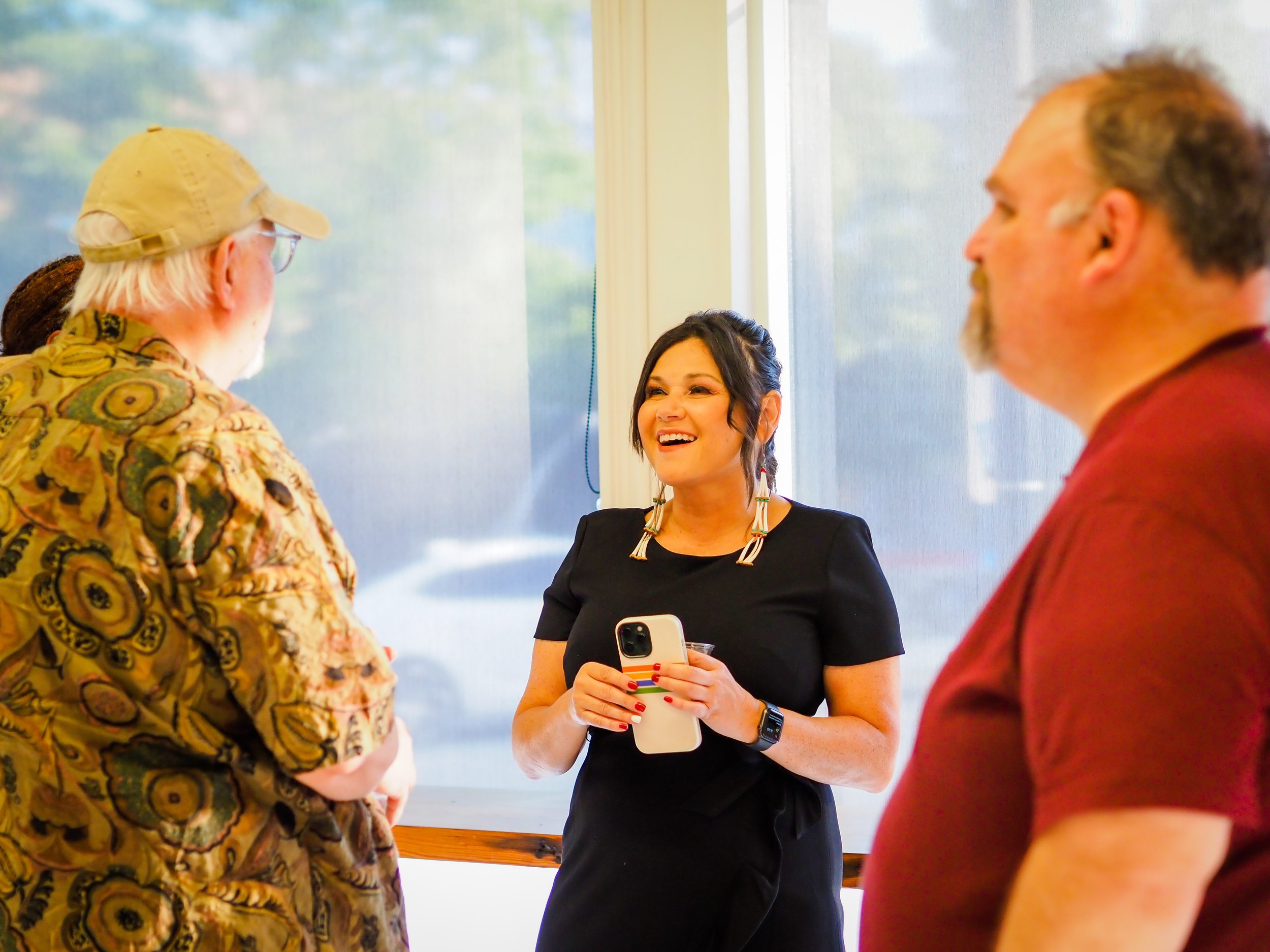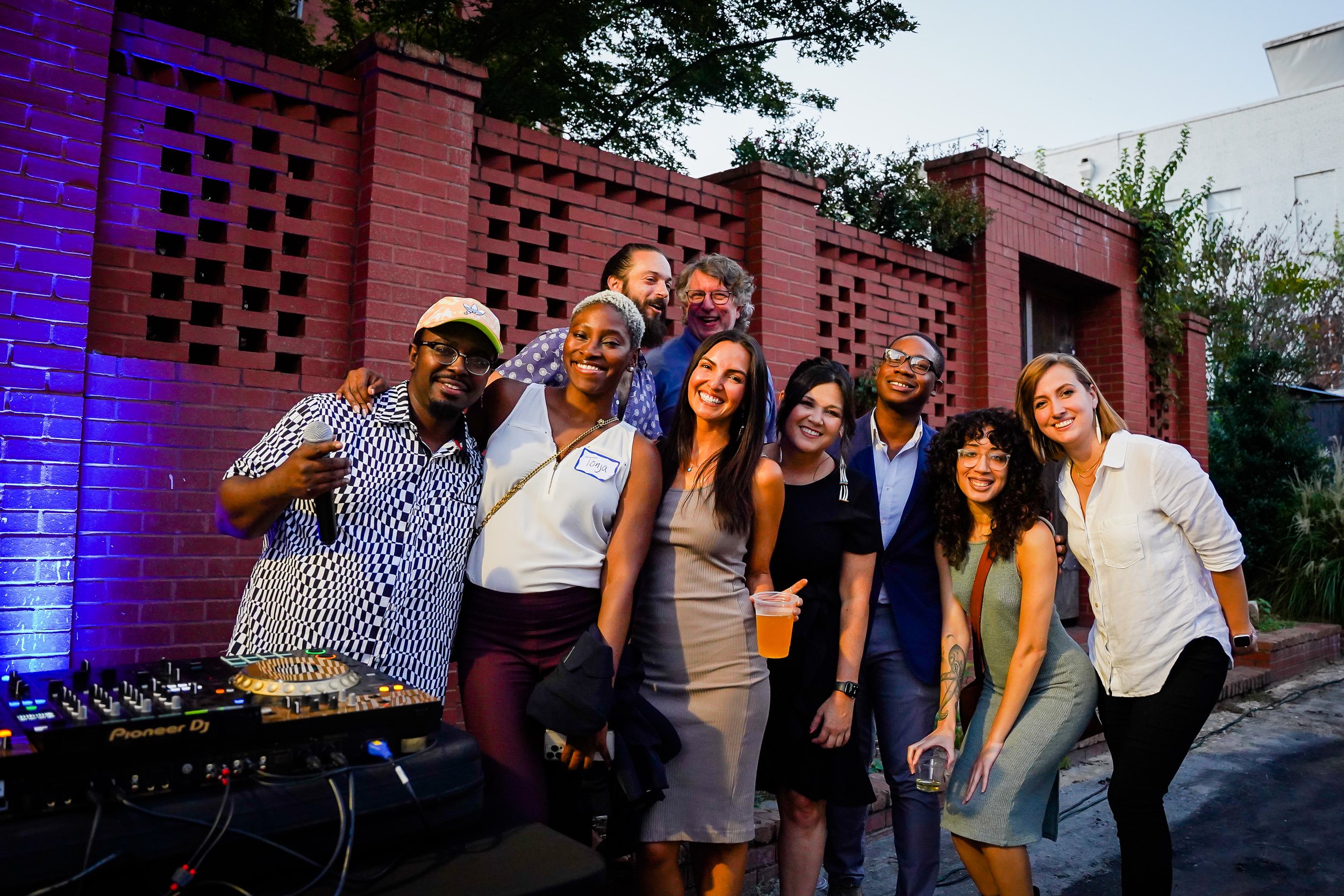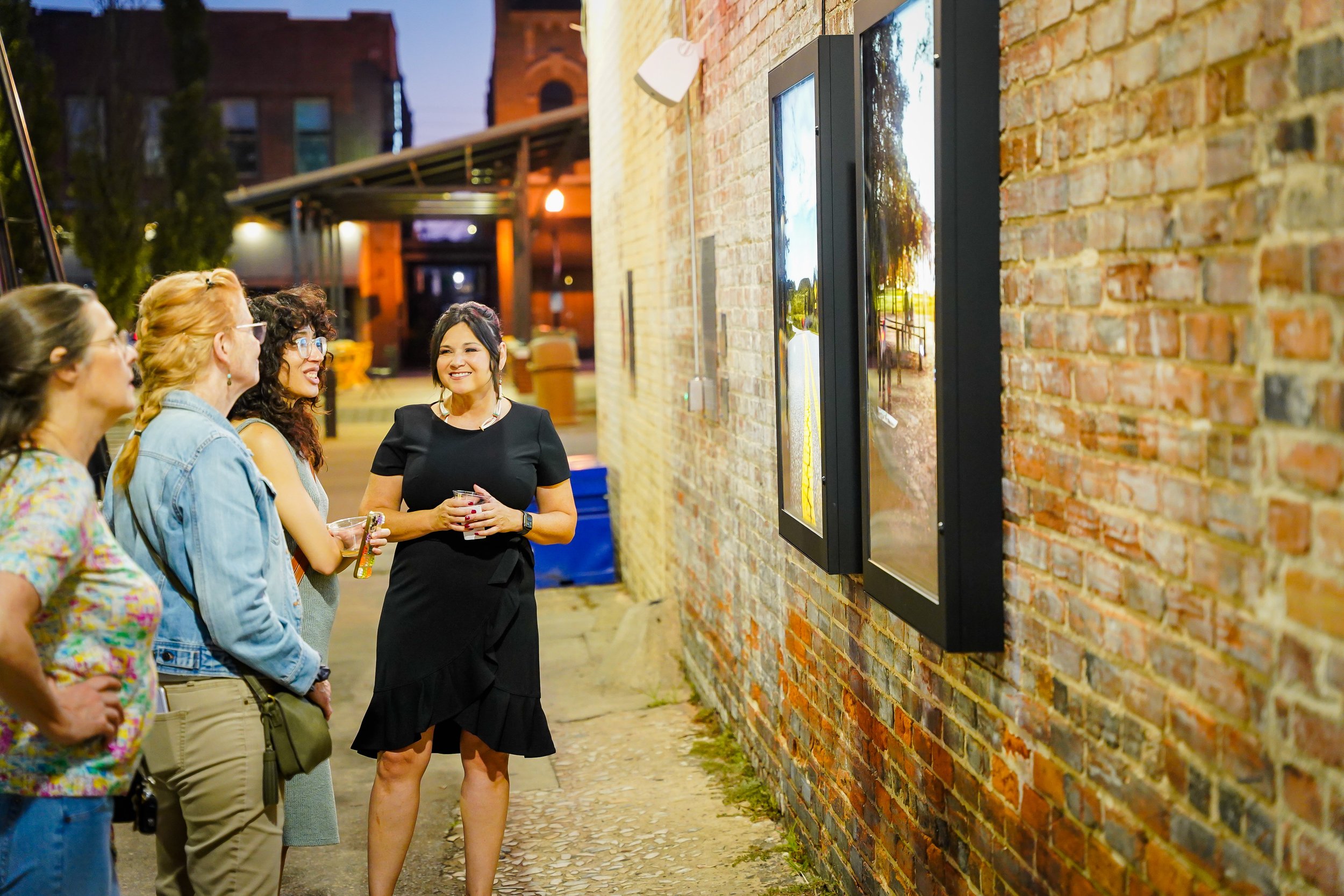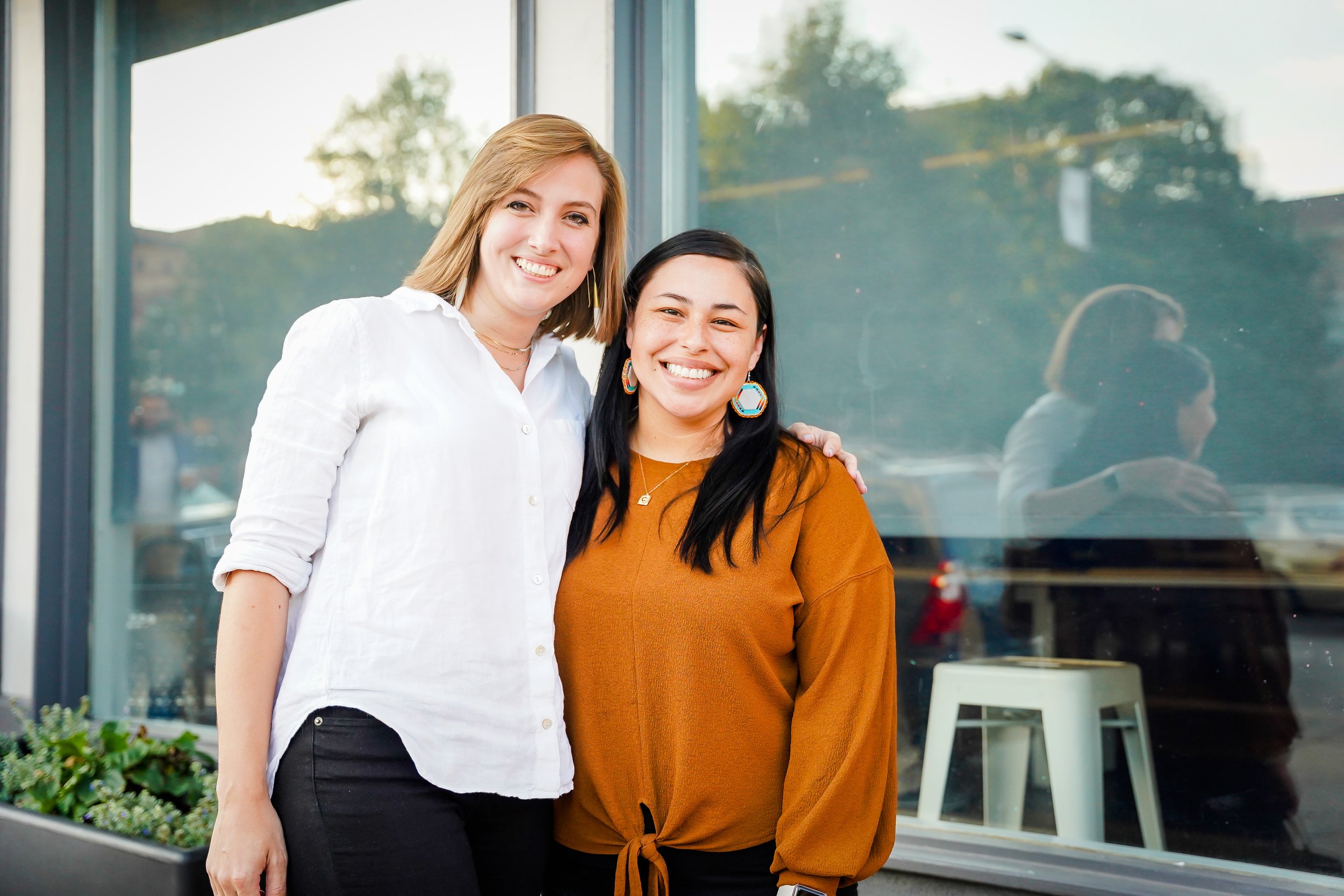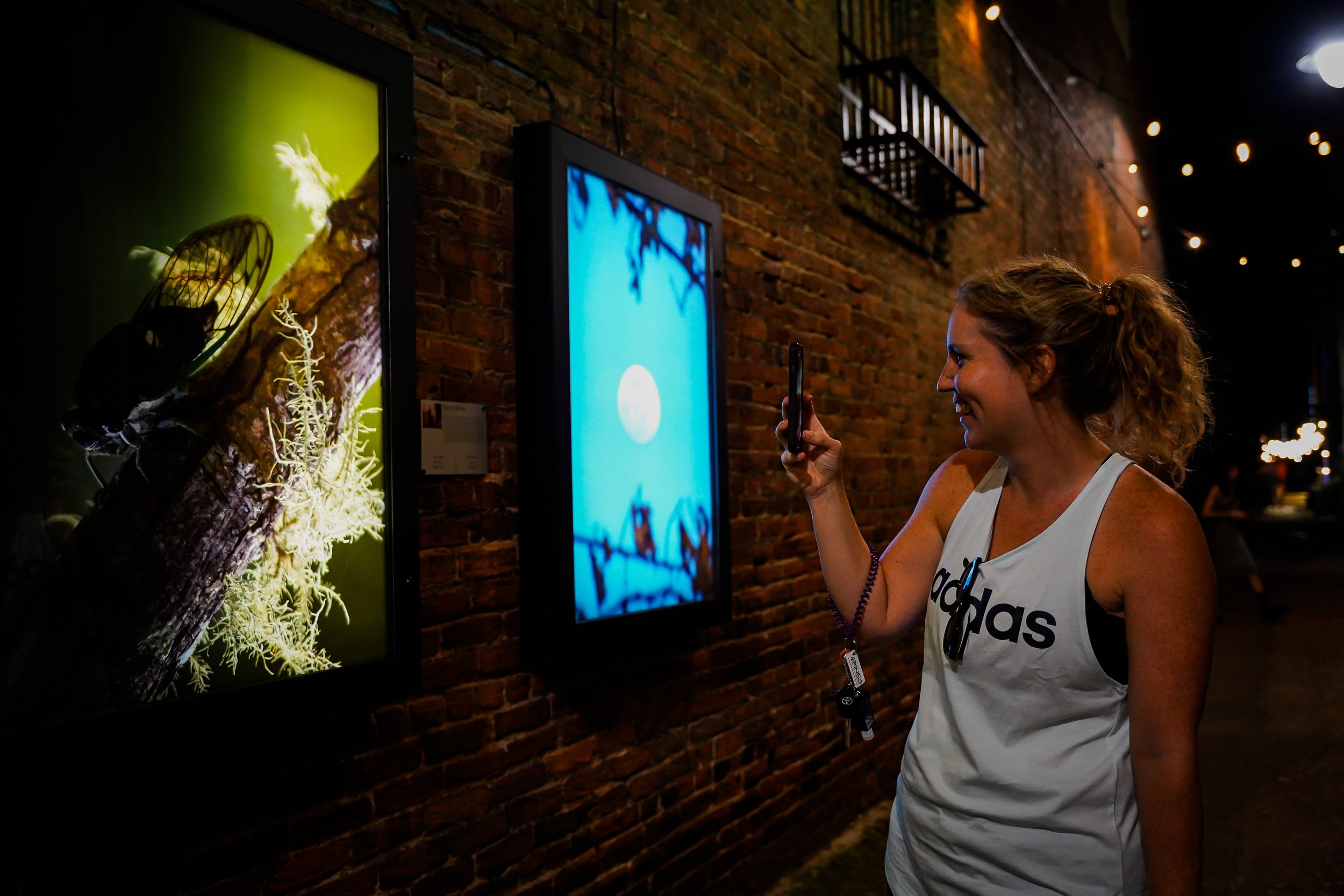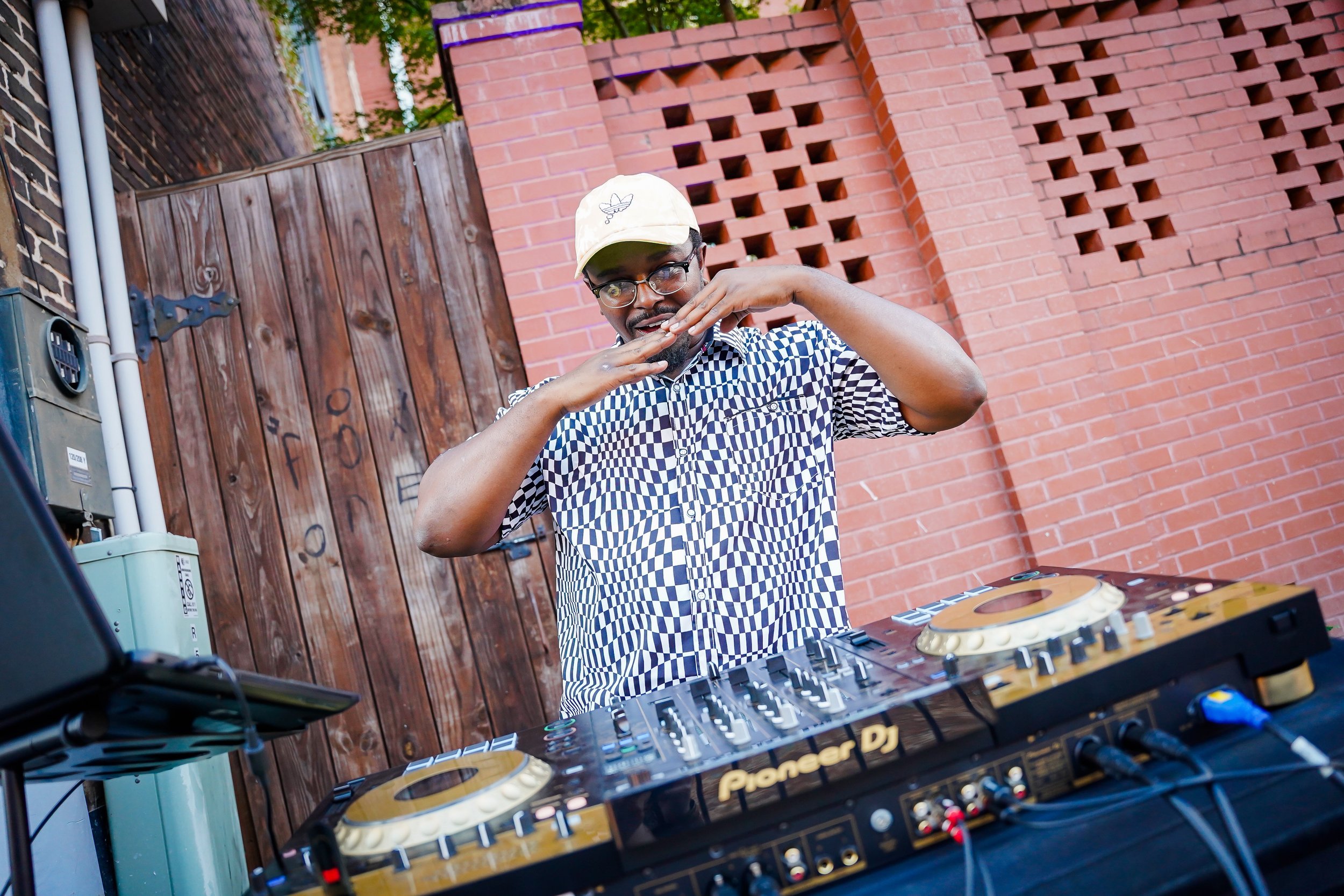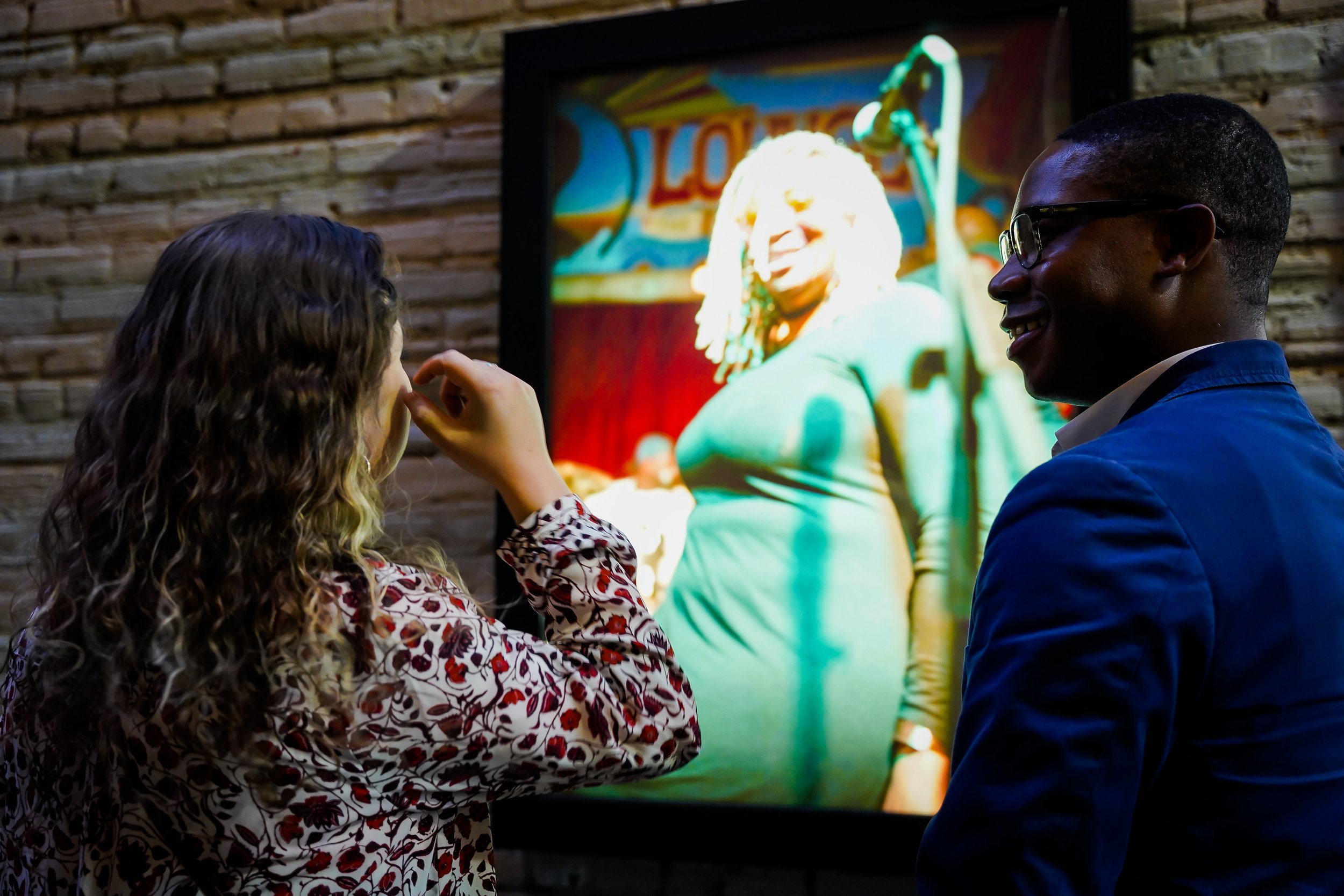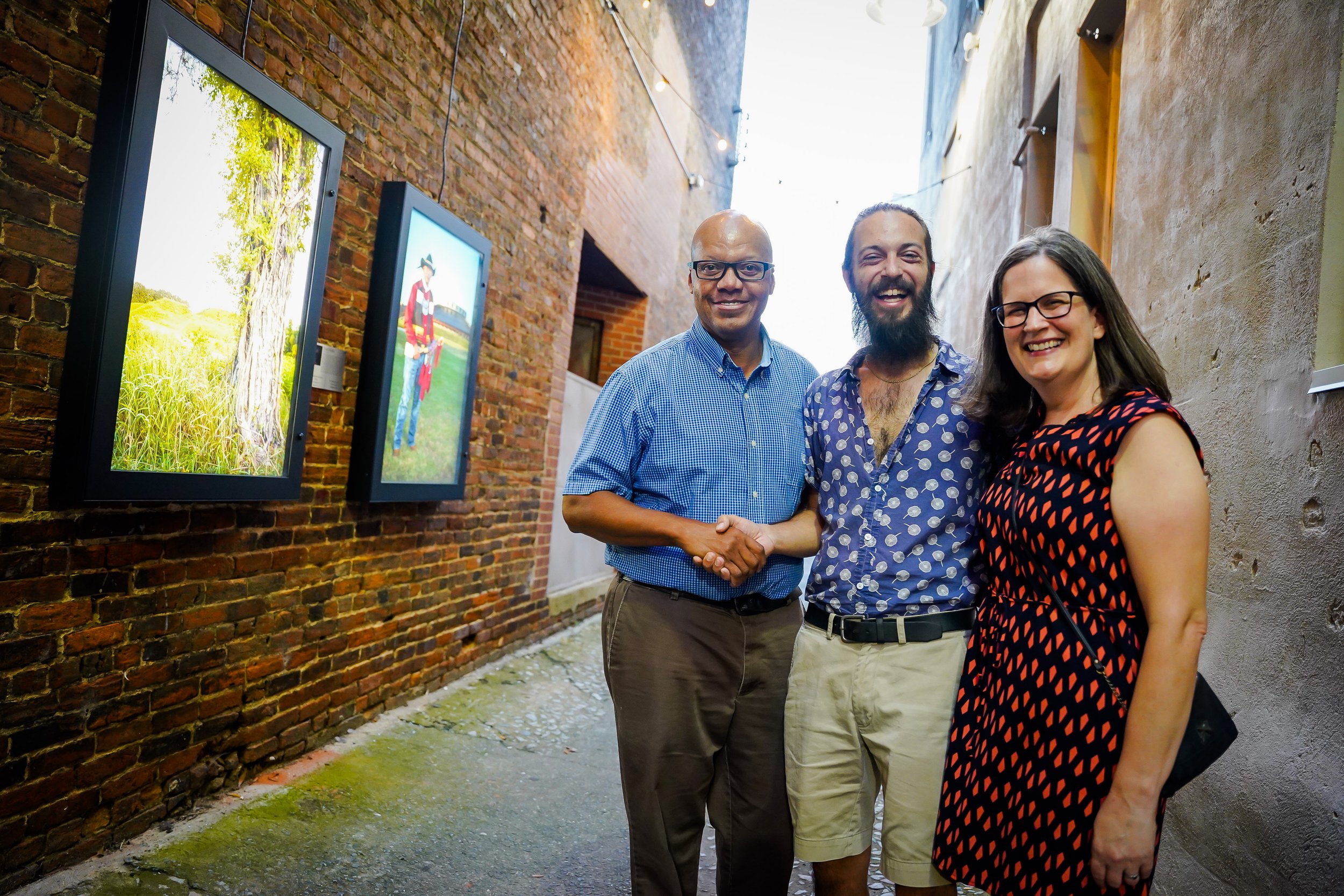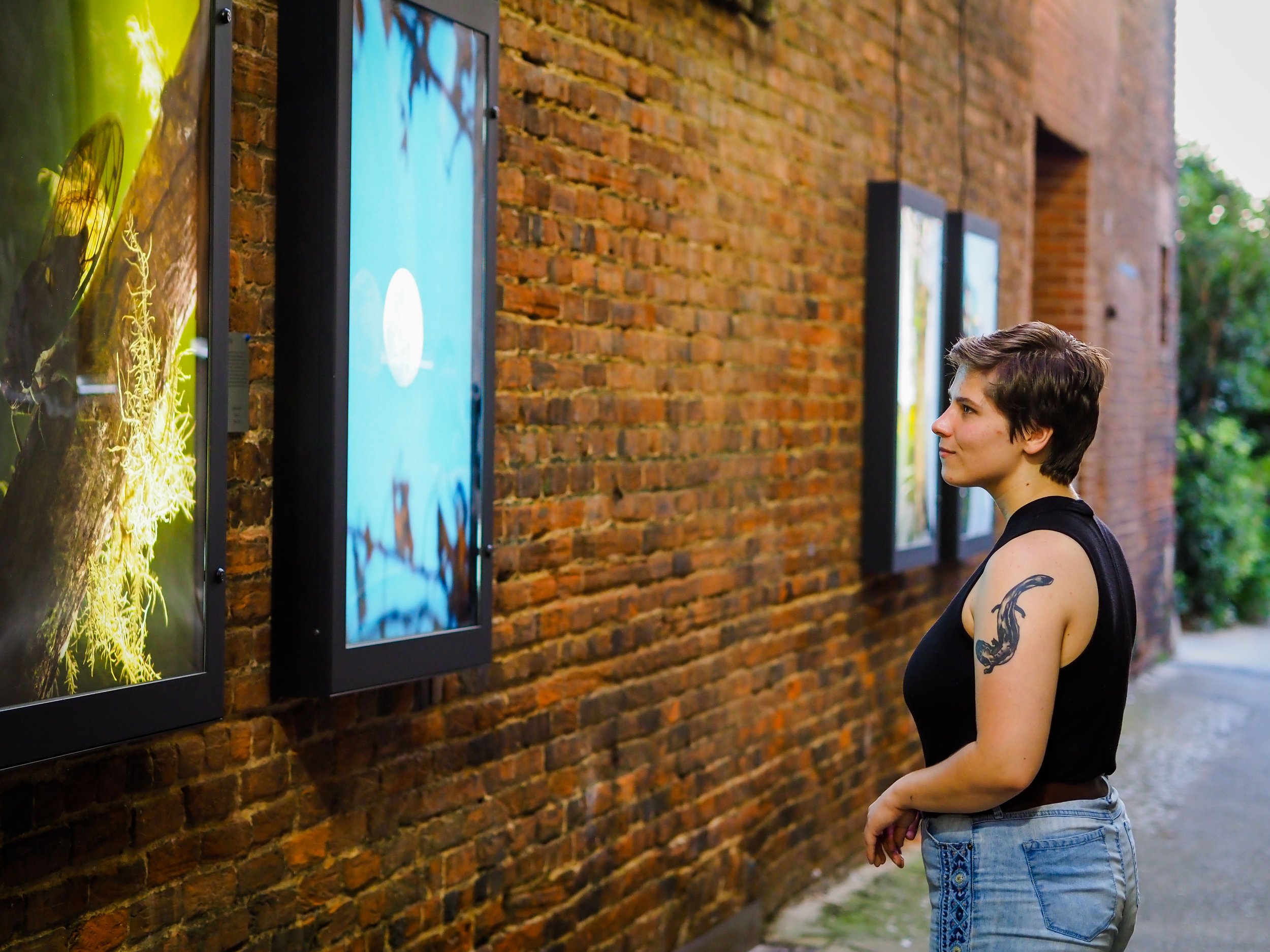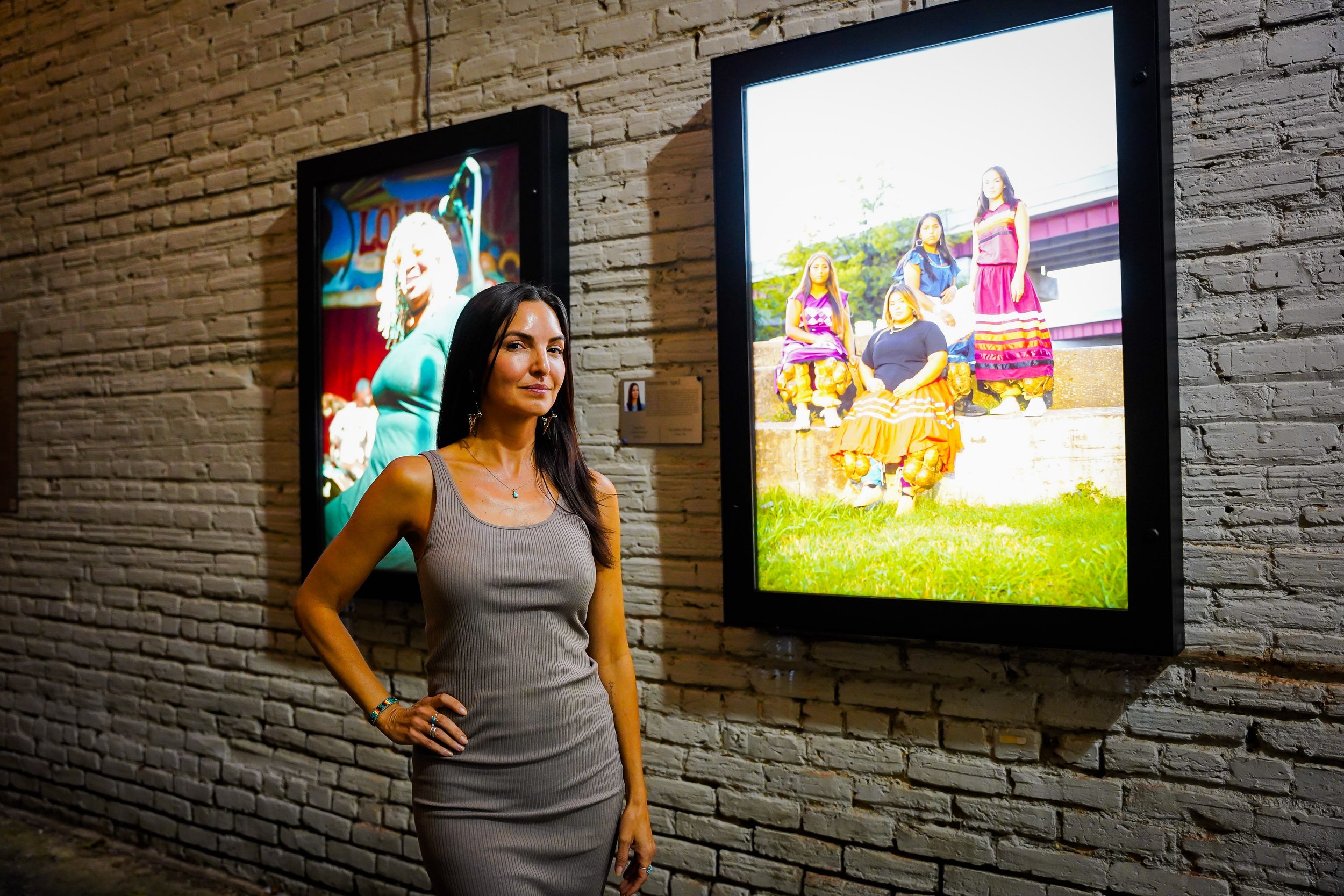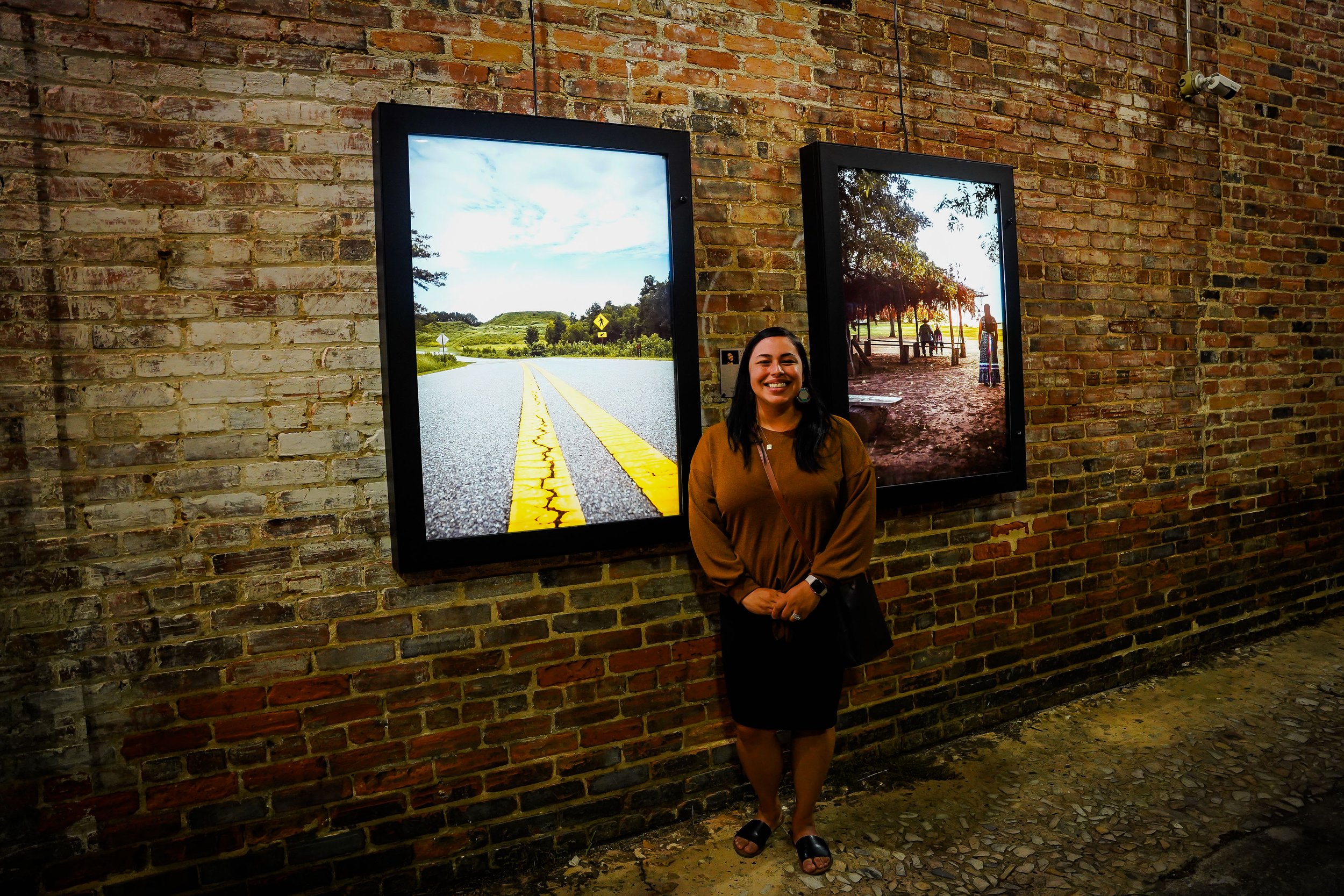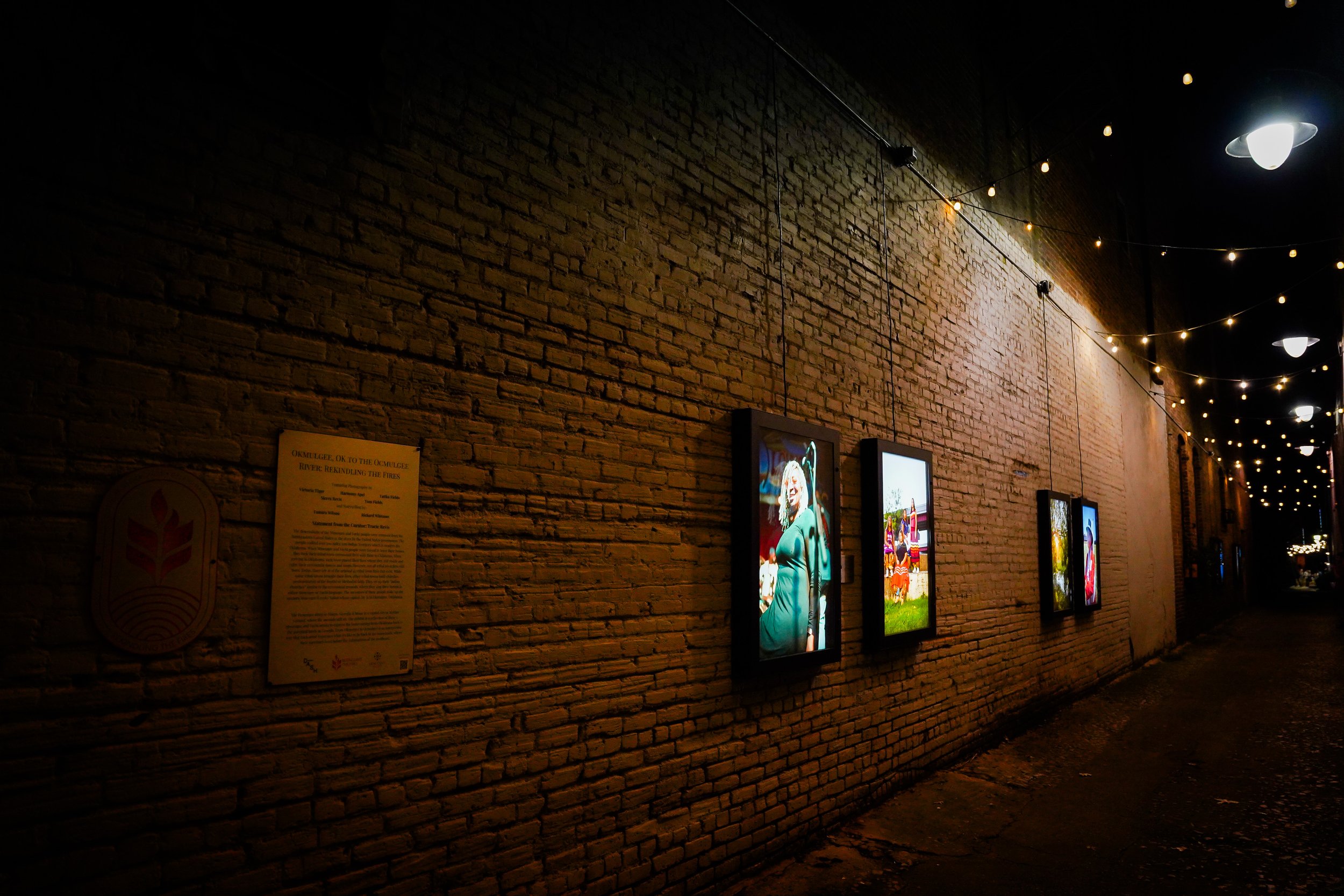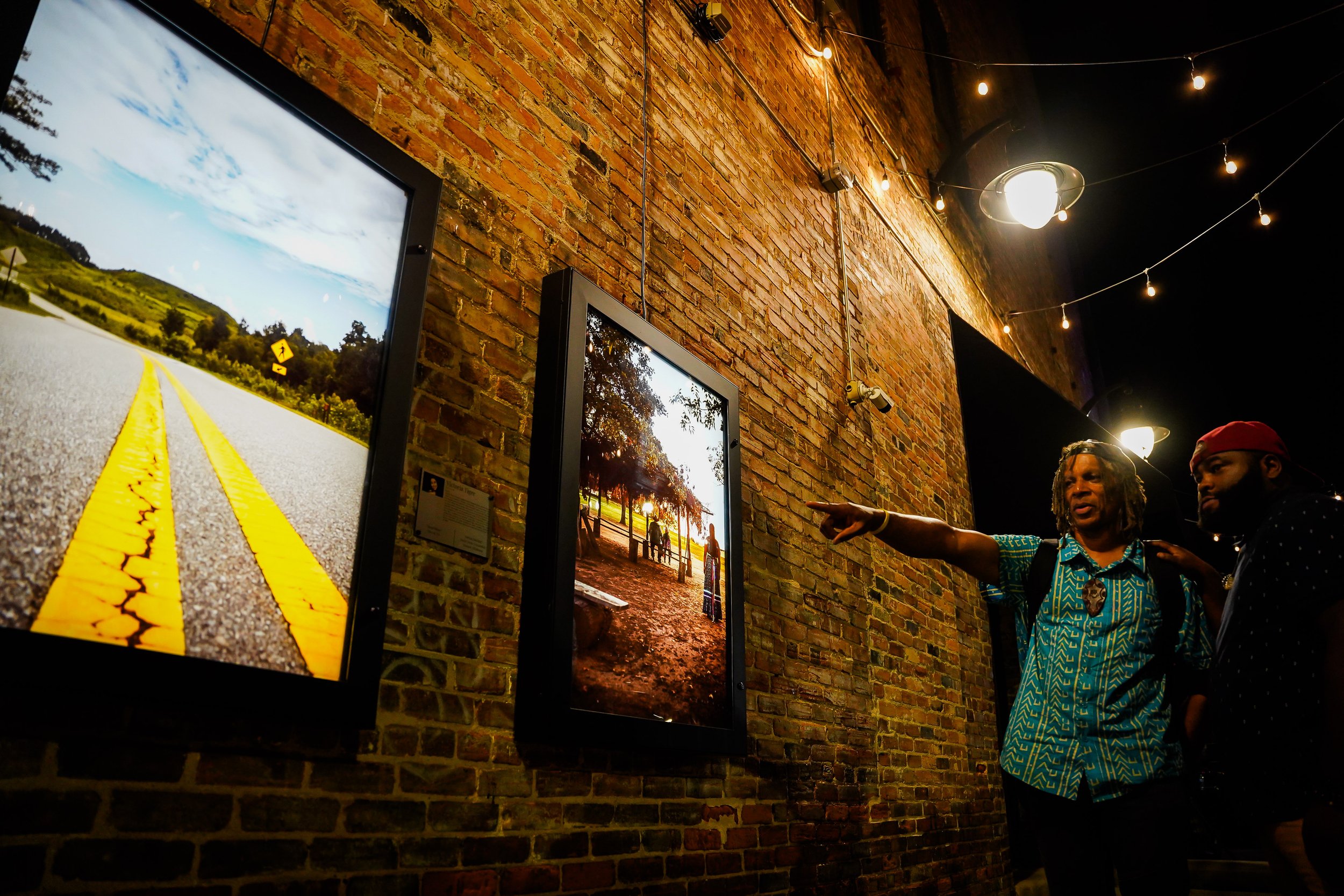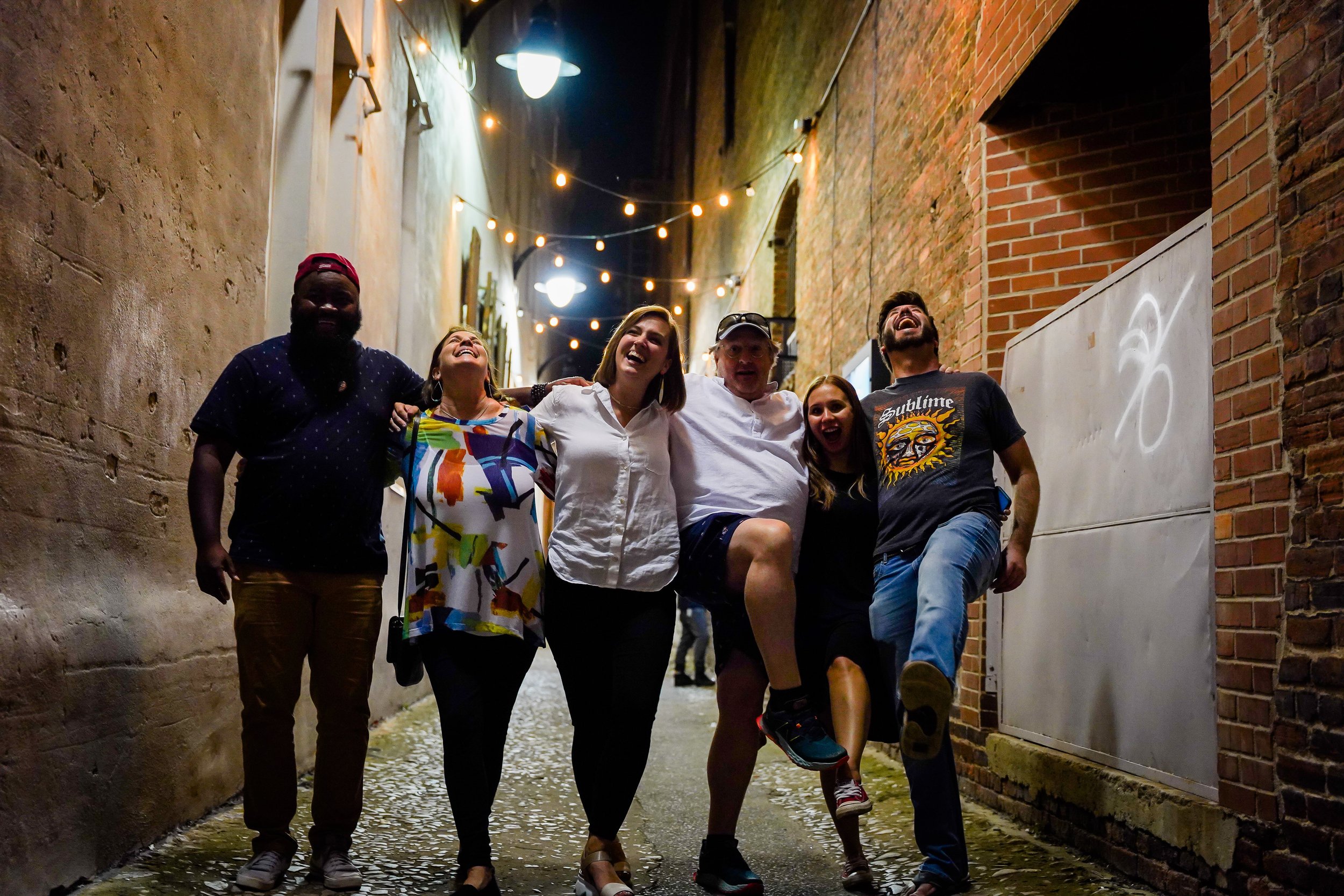Okmulgee, OK to the Ocmulgee River: Rekindling the Fires
downtown MACON, Ga - 2nd Street Alley
SEPTEMBER 15, 2022 - JULY 31, 2023
c/o Jessica Whitley Photography
Featuring Harmony Apel, Sierra Revis, Tom Fields,
Victoria Tiger & Yatika Fields
The descendants of the Muscogee and Yuchi people were removed from the Southeastern United States in the 1830s by the United States government. The people walked over 700 miles into Indian Territory which is modern day Oklahoma. When Muscogee and Yuchi people were forced to leave their homes, they took their tribal town ceremonial fires with them to Oklahoma. When arriving in Oklahoma, each town placed their fires where they still reside and enjoy their ceremonial dances and songs. However, not all tribal town fires still burn. Today, there are 16 of the original 45 tribal town fires that exist. While some tribal towns brought their fires, other tribal towns built churches predominately of the Baptist or Methodist faith. They set up their “Indian churches” similar to the ceremonial grounds, where they sing their hymns in either Muscogee or Yuchi language. The ancestors of these people make up the modern Muscogee (Creek) Nation whose capital city is in Okmulgee, Oklahoma.
The Ocmulgee River in Macon, Georgia is home to a capital city or Mother Ground, where the mounds still sit. The exhibit is a reflection of these 5 Muscogee and Yuchi artists to express the homecoming from Oklahoma back to the ancestral lands in Georgia. From Okmulgee to Ocmulgee: Rekindling the Fires is an interpretive way that each artist expresses what it's like to be back in the homelands, where their ancestors lived before the colonization of the southeast.
Curated by Tracie Revis of the Muscogee Nation
Presented by NewTown Macon & Dashboard.
This project is funded in part by a grant from South Arts in partnership with the National Endowment for the Arts and Dashboard.
press
"To show that we have come back": First event of Ocmulgee Indigenous Celebration happening in downtown - 13WMAZ
Ocmulgee Indigenous Celebration to celebrate Muscogee (Creek) culture, art - Macon Telegraph
Secretary of Interior, hundreds more take part in Ocmulgee Indigenous Celebration - Macon-Bibb County
Photos by Jessica Whitley Photography




